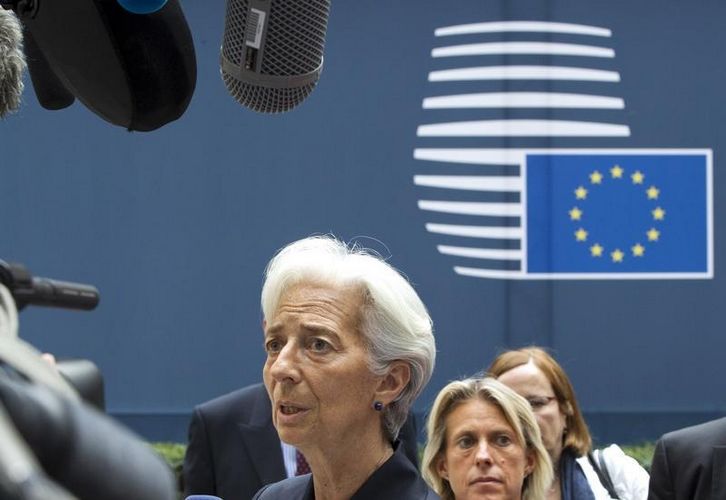This article was originally published by the Official Monetary and Financial Institutions Forum (OMFIF) in the The OMFIF Briefing.
If German Chancellor Angela Merkel is praying for a Yes vote in Sunday’s Greek referendum, so too must be IMF Managing Director Christine Lagarde.
The IMF is on the hook to Greece for around US$25bn and Greece is already in arrears to the IMF on a US$1.5bn payment. A No vote would almost certainly shut the door to resumed negotiations with Greece’s official creditors. It would usher in an embarrassingly lengthy period during which Greece would remain in default on the largest loan that the IMF has made in its 70 history.
A No vote could also be the prelude to a Greek exit from the euro. It would be an understatement to say that this would have considerable implications for the IMF’s credibility and for Lagarde’s prospects for a second term as IMF managing director.
A Greek exit would inevitably raise questions over the design of the IMF’s past Greek lending programmes and over the IMF’s wisdom in lending unprecedented amounts of money to keep Greece in the euro at all costs. Questions would be asked why the IMF did not foresee the depth of the Greek economic collapse. Attention would focus, too, on why Greece was put through years of austerity within a euro straitjacket at the cost of sending its economy into a deep depression, and with the result of forced euro departure.
Such an outcome would make it difficult for the IMF to defend its ‘exceptional access’ lending policy that in effect removes limits on how much the Fund can lend to an individual country. This will be particularly the case considering that over the past few years very large IMF lending to Greece forestalled much-needed private debt restructuring in that country.
A Yes vote might bring some comfort, but it would not be without serious problems. Approval of the creditors’ proposals would be tantamount to a public vote of no confidence in the government of Alexis Tsipras. He could hardly continue as Greece’s prime minister.
Optimists might argue that this would allow a technocratic government to be quickly formed in Athens, as occurred in 2011, which would be more acceptable to Greece’s official creditors. However, in today’s fraught Greek political climate, the more likely scenario is that Greece would once again be forced to hold general elections that would subject the country to another month of political uncertainty that might push its economy to the point of no return.
It is said that success has 100 fathers while failure is an orphan. Whatever the outcome of Sunday’s referendum, one can be sure of one thing: Merkel and Lagarde will argue that Greece’s economic disaster was of the Greeks’ own making and had nothing to do with either Europe or the IMF. The truth is more complicated. Let us hope that there will be time in the aftermath to investigate thoroughly the causes of this extremely difficult and unsatisfactory episode.
Desmond Lachman is a resident fellow at the American Enterprise Institute. He was formerly a Deputy Director in the International Monetary Fund’s Policy Development and Review Department and the chief emerging market economic strategist at Salomon Smith Barney.
